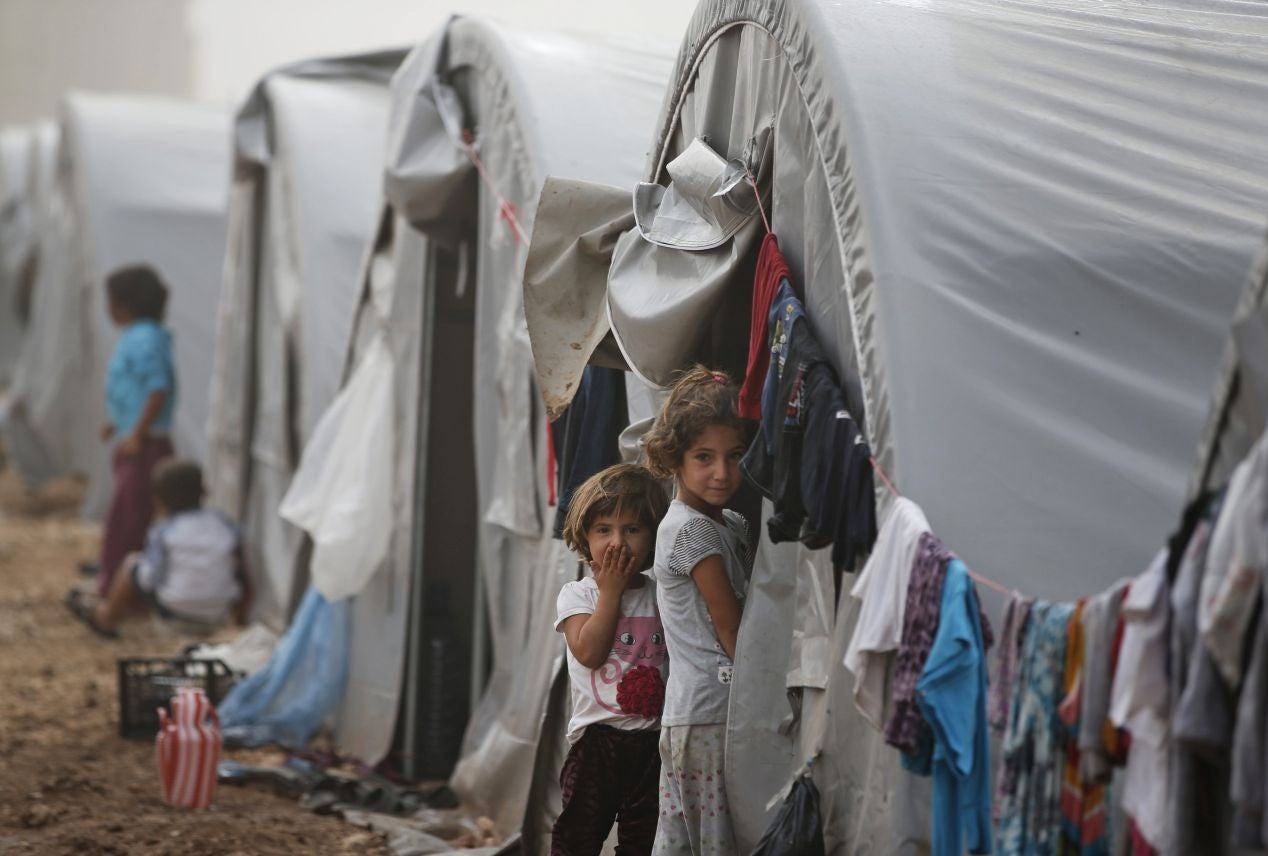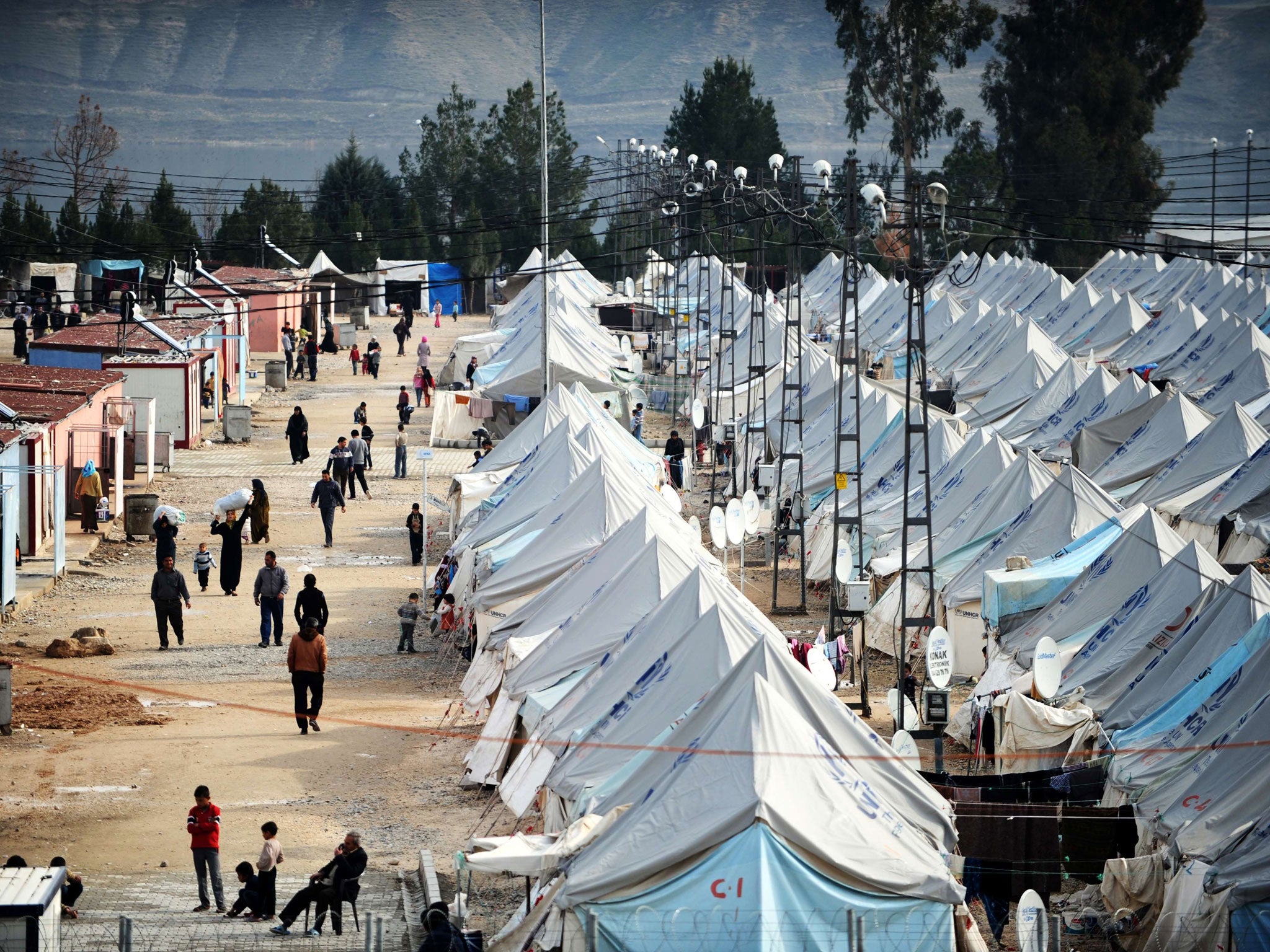UN suspends food programme for 1.7 million Syrian refugees because of 'funding crisis'
The agency blamed donors for failing to honour their commitments

The United Nations has suspended a food programme for more than 1.7 million Syrian refugees in five countries because donors are not fulfilling their commitments.
Saying the suspension will be lifted immediately if new funding arrives, the World Food Programme (WFP) warned of “devastating” consequences for families over the winter.
The executive director, Ertharin Cousin, said: “A suspension of WFP food assistance will endanger the health and safety of these refugees and will potentially cause further tensions, instability and insecurity in the neighbouring host countries.
“The suspension of WFP food assistance will be disastrous for many already suffering families.”
The programme allocates vouchers to allow Syrian refugees in Jordan, Lebanon, Turkey, Iraq and Egypt to buy food in local shops.
A spokesperson for the WFP said that many refugees are unprepared for a harsh winter, especially in Lebanon and Jordan, where many children are reportedly barefoot and without proper clothing, living in bad hygiene conditions in mud-drenched tents.

Calling on donors to honour their pledges, Ms Cousin said the agency needed $64 million (£40 million) “immediately” continue the food programme this month.
According to the UN’s refugee agency (UNHCR), there are more than 3.2 million Syrian refugees outside of the country and 7.6 million people displaced within the country.
Many are in temporary camps but of those resettled abroad, figures by Statista shows that Germany has housed the most refugees.
The country has pledged to place 20,000 people, compared to 5,600 for Australia in second place.
Britain was criticised for refusing to sign the UN refugee agency’s resettlement programme.
The WFP estimates that $800 million (£510 million) of its vouchers have been used by Syrian refugees since start of the continuing civil war in 2011.
The UN High Commissioner for Refugees, António Guterres, said the timing of the crisis could not be worse.
“Winter is already an extremely difficult period for Syrian refugees, but the suspension of food assistance at this critical juncture is going to be devastating,” he said.
“It will impact tens of thousands of the most vulnerable refugee families who are almost entirely dependent on international aid. I urgently appeal to the international community – support WFP now, don’t let refugees go hungry.”
The WFP has supplied food and vouchers to millions of displaced people inside Syria and up to 1.8 million refugees in neighbouring countries over the last three years.
Join our commenting forum
Join thought-provoking conversations, follow other Independent readers and see their replies
Comments
Bookmark popover
Removed from bookmarks